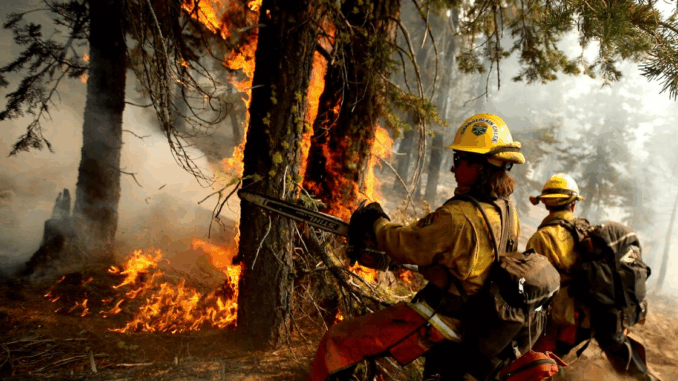
A Series Born from Fire and Truth
Fire Country isn’t just another procedural drama. Since its debut, it has stood apart by tackling one of California’s most dangerous and increasingly frequent natural disasters: wildfires. But more than just flames and heroism, the show delves into the moral, emotional, and institutional layers behind each blaze. Created by Max Thieriot—who also stars as Bode Donovan—the series takes inspiration from Thieriot’s own Northern California roots and the experiences of real-life firefighter crews, including inmate rehabilitation camps.
Grounded in Real-World Firefighting
Unlike many fictionalized portrayals of emergency services, Fire Country goes the extra mile to depict the physical and emotional toll of wildfire combat. The fire scenes are often shot with real heat, real smoke, and consulting input from Cal Fire professionals. Every fire feels visceral—not just because of the CGI or stunts, but because it’s written with a deep understanding of what these events mean for firefighters, victims, and entire towns.
This authenticity is one reason the show resonates so deeply with viewers who’ve experienced California’s worsening fire seasons. Whether it’s the harrowing Zabel Ridge fire in Season 2 or the camp-based rescue operations, the show channels realism with a deep respect for those on the frontlines.
Character Depth Beyond the Uniform

What also elevates Fire Country beyond the usual action-drama mold is its character work. Bode Donovan’s arc is more than just about redemption—it’s about breaking cycles of guilt, grief, and self-sabotage. Sharon Leone’s leadership as battalion chief is never framed as infallible; instead, we see her balancing personal health crises, grief over Vince’s death, and political maneuvering in a male-dominated space.
The fire may be the spectacle, but it’s the emotional stories—of forgiveness, loss, love, and change—that keep fans returning each week. Jake’s evolution from rival to ally, Gabriela’s complicated love life, and Eve’s struggles with identity all reflect a broader message: even those who save lives every day are wrestling with their own flames.
Social Relevance Through Inmate Firefighting
One of the show’s boldest elements is its spotlight on inmate firefighter programs like Three Rock. These programs are controversial in real life—praised for giving incarcerated individuals purpose and experience, yet critiqued for issues around fair pay and post-incarceration job opportunities.
Fire Country doesn’t shy away from these complexities. Instead, it humanizes those behind bars and allows them to be more than their mistakes. Bode’s fellow inmates are written with depth, humor, and agency, not just as supporting characters but as individuals with backstories that matter. It opens a dialogue about second chances and what justice should look like in a world that’s constantly under threat from fire.
Female Power and Vulnerability
Women in Fire Country aren’t confined to sidelines or romantic subplots. Sharon Leone is one of the most commanding figures on screen—respected by her peers and unafraid to challenge authority, even as she battles kidney failure. Gabriela isn’t just Bode’s love interest; she’s a strong EMT and an emotional anchor. Eve represents both the strength and vulnerability of being a queer woman in the fire service, navigating friendships, trauma, and professional pressure.
The series excels in making its female characters complex, ambitious, and deeply human, giving them the space to thrive, fail, grieve, and grow.
Cinematic Quality on Network TV
Visually, Fire Country often looks more like a high-end streaming series than a standard network drama. The wildfire sequences are grand and immersive, while quieter moments are lit with a warmth and intimacy that draws you into each character’s emotional state. The sound design—sirens, embers crackling, radio static—is layered and thoughtful. Combined with a heartfelt score and powerful performances, the show feels like a cinematic experience every week.
Why It’s Worth Watching—Now More Than Ever
With climate change pushing fire seasons longer and deadlier across the globe, Fire Country feels painfully timely. But what makes the show special isn’t just its relevance—it’s how it transforms large-scale disaster into deeply personal drama.
It’s about families struggling to communicate. About men and women fighting battles at home and in the wilderness. About rebuilding after trauma, even when the smoke clears. About how systems of justice and rescue can be both flawed and full of grace.
In short, Fire Country burns with purpose. It entertains, yes, but it also enlightens—about people, about systems, about nature itself.
If you’re looking for a series with gripping action, heartfelt drama, real-world issues, and a cast that gives it their all—Fire Country is absolutely worth your time. More than just a firefighter show, it’s a story about redemption, resilience, and the people who run into the fire when everyone else runs out.
Let the flames draw you in—you may find yourself more changed than you expect.
